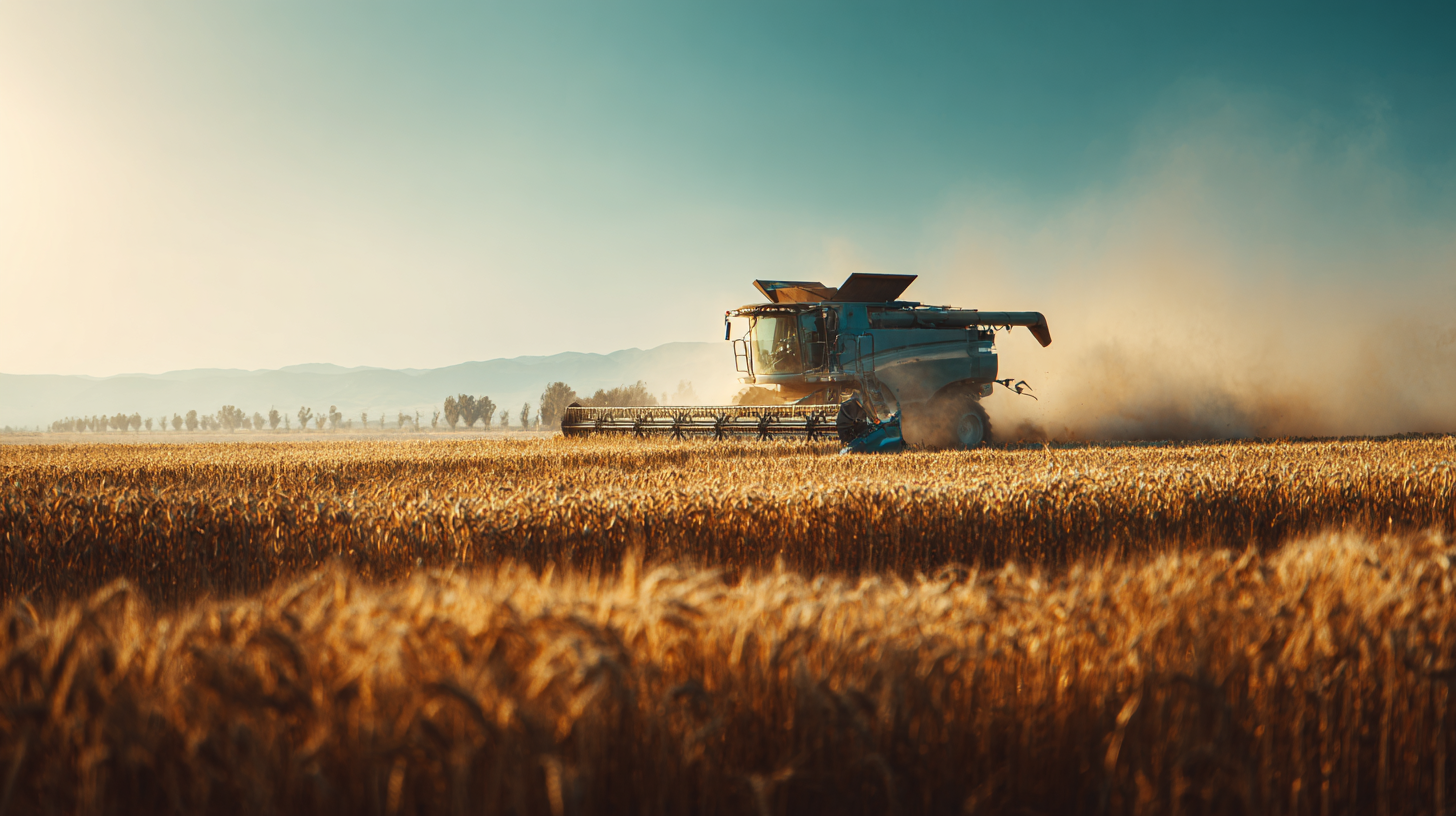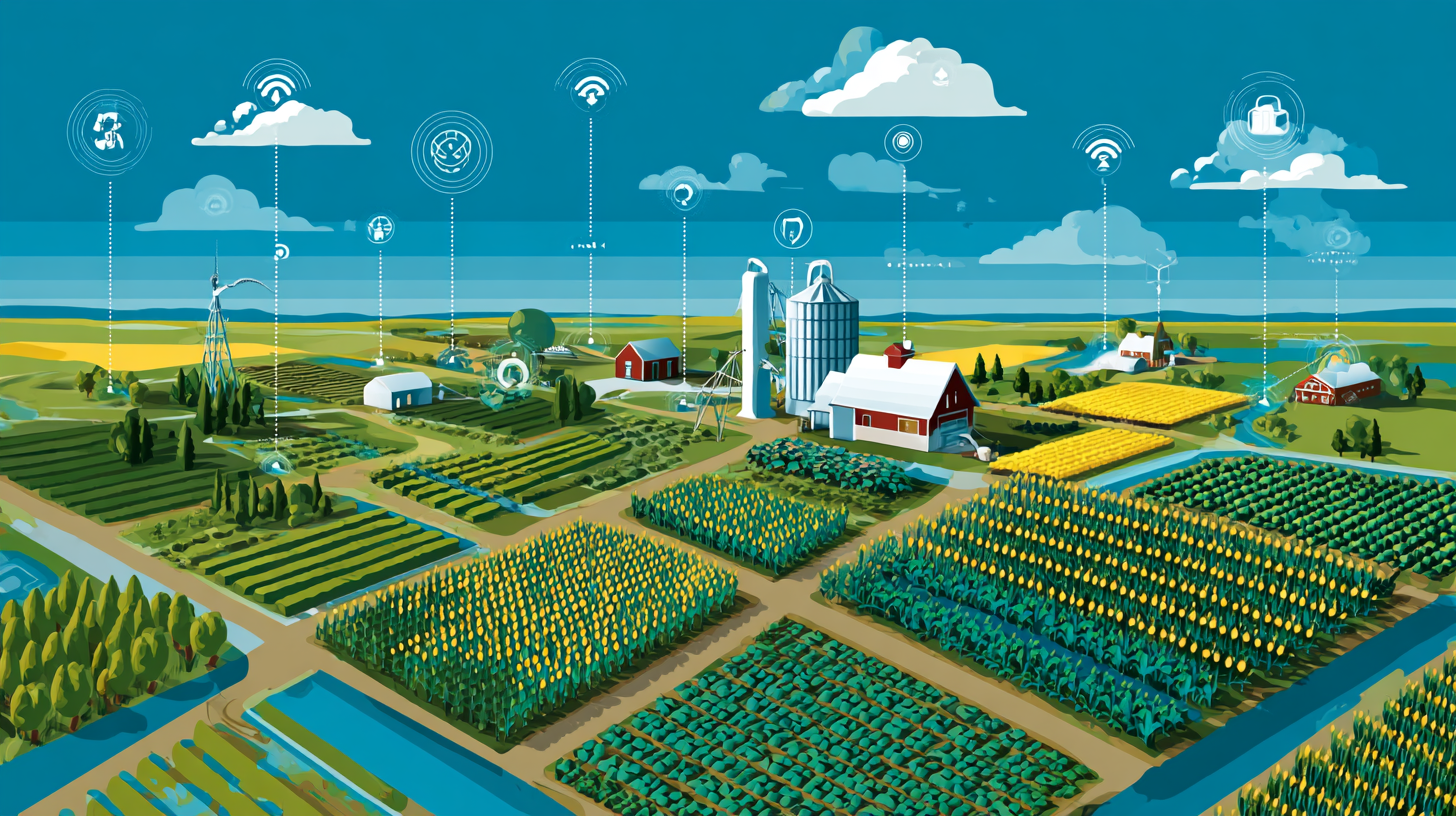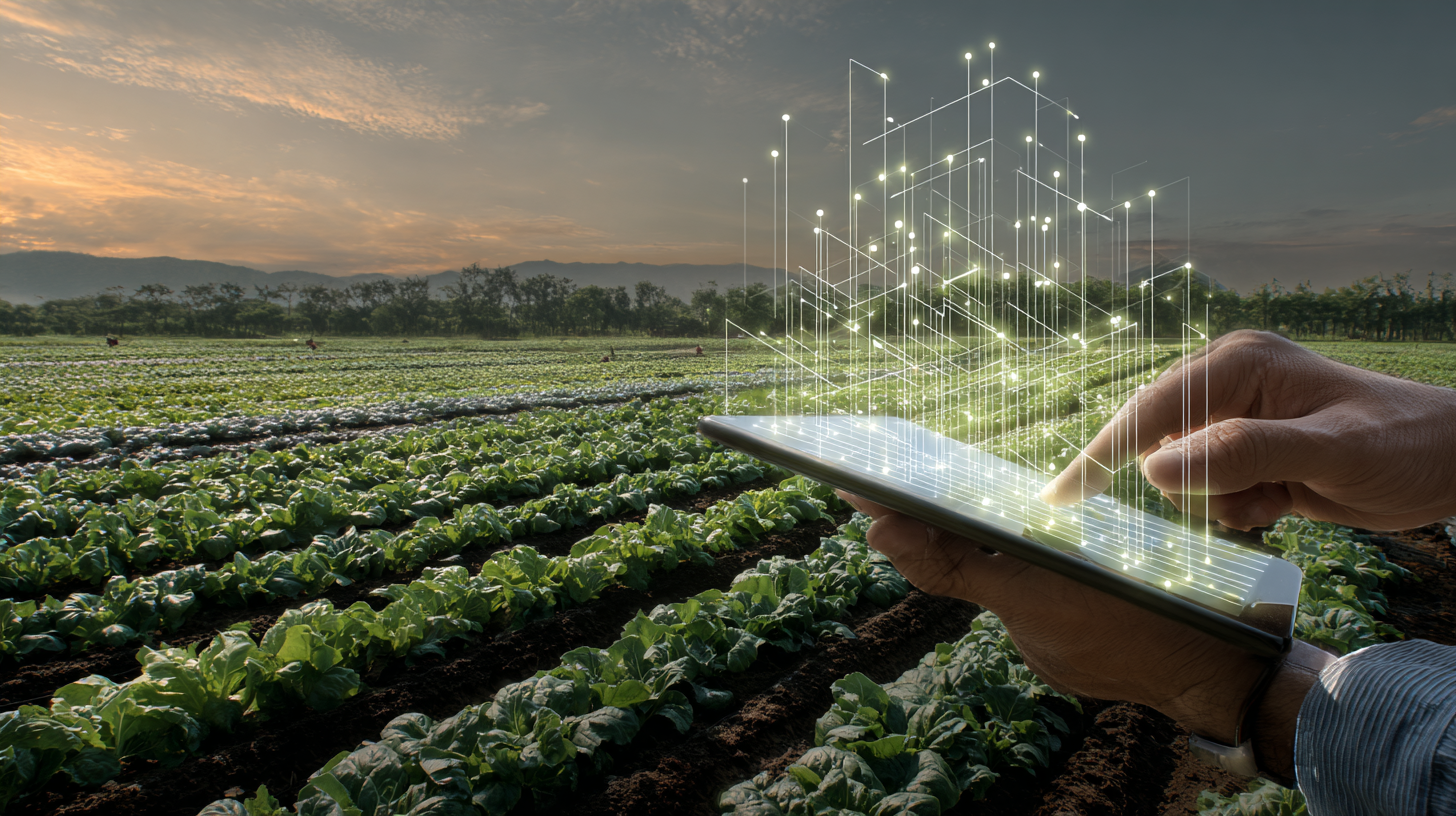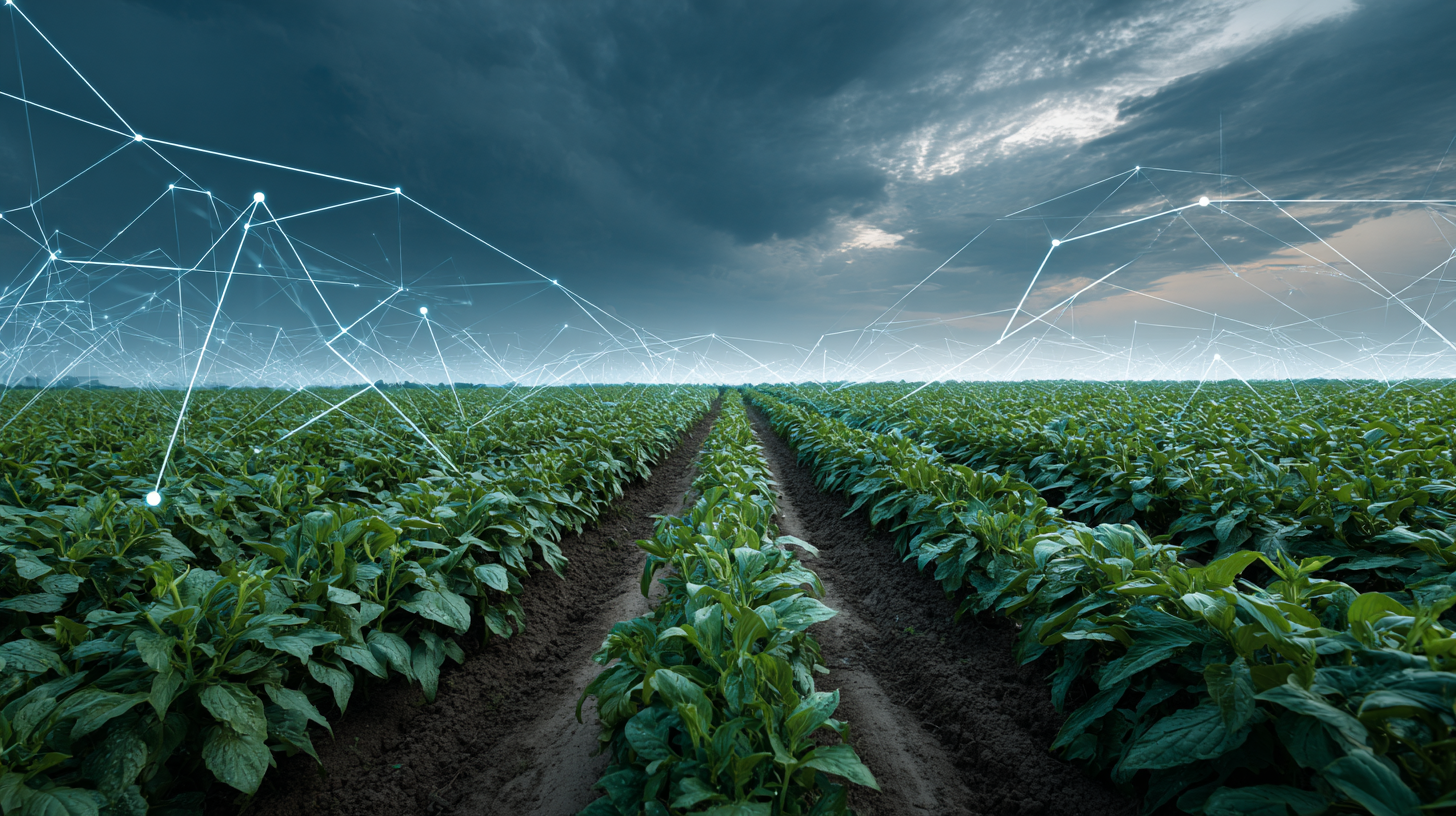
AI in Agriculture: Enhancing Sustainability and Food Security in the Supply Chain
Agriculture is the bedrock of human existence, providing the food that sustains us and the raw materials that fuel our industries. However, as the global population continues to burgeon, the pressure on agricultural systems intensifies. This is where Artificial Intelligence (AI) comes into play, promising to transform agriculture by making it more efficient, sustainable, and resilient. In this article, you will explore the various ways AI is enhancing sustainability and food security in the agricultural supply chain.
The Role of AI in Agriculture
AI technologies are reshaping the agricultural landscape, offering innovative solutions to age-old challenges. From precision farming to automated machinery, AI applications are enabling farmers to make data-driven decisions that enhance productivity, reduce waste, and ensure sustainability. Imagine being able to analyze soil health, weather patterns, and crop viability all at once! AI makes this possible, allowing you to farm smarter, not harder.
Precision Agriculture: A Game Changer
Precision agriculture is a farming management concept that utilizes technology to monitor and manage field variability in crops. With tools powered by AI, you can collect and analyze vast amounts of data from sensors, satellites, and drones. For instance, AI can help you forecast yield quantities, manage irrigation more efficiently, and determine the optimal times for planting and harvesting.

Through AI-driven analytics, you gain insights that reduce resource consumption and improve yield quality. This not only enhances the viability of your farming practices but also contributes to environmental sustainability—after all, less waste means a healthier planet.
Enhancing Sustainability through AI
Sustainability is at the forefront of the global agricultural agenda. Using AI, you can adopt more sustainable practices that contribute to environmental conservation while still meeting food demands.
Resource Efficiency
Using AI technologies allows you to optimize the use of water, fertilizers, and pesticides. For example, smart irrigation systems powered by AI can analyze weather data and soil moisture levels to deliver just the right amount of water, minimizing waste. Similarly, AI can be used to develop precision nutrient application techniques, ensuring that fertilizers reach crops without affecting soil health.
Reducing Carbon Footprint
AI also plays a role in reducing the carbon footprint of agriculture. For example, by optimizing transportation routes and schedules, you can reduce fuel consumption and lower greenhouse gas emissions associated with food distribution. Implementing AI in logistics can lead to a more efficient supply chain that not only saves costs but also contributes to a healthier environment.
AI in Food Security
Food security is a pressing issue worldwide, with millions of people lacking reliable access to sufficient food. Yonder mentioned, AI can play a significant role in improving food security through several pathways.

Predictive Analytics
AI-driven predictive analytics can be leveraged to forecast food demands and supply shortages. By analyzing large data sets, you can make more informed decisions regarding planting schedules and crop selections. This foresight can help mitigate the risk of crop failures and ensure that food is available when and where it is needed the most.
Early Warning Systems
Furthermore, AI can be integrated into early warning systems that monitor and predict climate impacts on agriculture. For example, machine learning algorithms can analyze patterns in weather data to predict droughts, floods, or pest outbreaks. With this information, you can take preventive measures, thus safeguarding food supplies and improving food security.
AI and Supply Chain Optimization
The agricultural supply chain is complex, involving numerous stakeholders and processes. You can harness the power of AI to streamline these operations, ensuring a smoother flow from farm to table.
Inventory Management
AI can enhance inventory management through smart algorithms that track stock levels and predict demands. This ensures that you have the right amount of produce available at the right time, reducing food wastage and ensuring that consumers have access to fresh products.
Real-Time Monitoring
Imagine being able to monitor the condition of crops, livestock, and overall supply chain metrics in real-time. AI technologies enable you to gather insights that can forecast potential disruptions, regulate temperatures during transport, and maintain quality control standards. This level of oversight ensures that food safety is maintained throughout the supply chain.
The Intersection of AI and Climate Resilience
As climate change continues to pose significant challenges to agriculture, integrating AI into your practices can build resilience in a shifting environment.

Climate Smart Agriculture
Climate Smart Agriculture (CSA) is an approach designed to enhance productivity in a sustainable manner. AI aids this by providing you with the tools to develop climate-resilient crop varieties and farming techniques. By utilizing historical and predictive climate data, you can make decisions that align with future climate scenarios, ensuring that your agricultural practices remain viable.
Adaptation Strategies
Moreover, AI can support you in implementing adaptation strategies tailored to local climates. Whether it’s adjusting planting schedules or selecting crops that thrive in changing temperatures, AI empowers you to take proactive measures for a sustainable future. This adaptability is crucial for maintaining food security as our climate continues to evolve.
Ethical Considerations and Governance in AI Deployment
As you navigate the opportunities AI offers, it is essential to address the ethical and governance challenges associated with its deployment in agriculture.
Data Privacy and Security
With the increasing reliance on data, issues related to data privacy and security become paramount. It’s crucial to ensure that the data you collect and utilize adheres to ethical guidelines, safeguarding both personal and proprietary information. By implementing robust data governance frameworks, you can maintain trust and integrity in your AI applications.
Equity and Accessibility
There’s a risk that AI could exacerbate existing inequalities if access to technology remains limited to certain groups. Ensuring equitable access to AI tools and training is vital, enabling all farmers, regardless of their size or resources, to benefit from AI advancements. Fostering inclusivity in AI deployment contributes to sustainable agriculture, reinforcing the notion that everyone plays a role in enhancing food security.
The Future of AI in Agriculture
Looking ahead, the potential for AI in agriculture is vast. Ongoing advancements in technology promise to enhance existing frameworks and introduce entirely new methods of farming.
Integration with Other Technologies
AI is expected to work alongside other emerging technologies like the Internet of Things (IoT) and blockchain. For instance, IoT sensors can provide real-time data on crop health, while blockchain could enhance traceability in the supply chain. The synergy of these technologies will lead to a more connected and efficient agricultural ecosystem.
Ongoing Research and Development
As research continues to evolve, new AI-driven solutions will emerge, addressing challenges that have yet to be fully tackled. Collaborative efforts among universities, tech companies, and agricultural organizations can yield innovative approaches to deploying AI effectively within the agricultural sector.
Conclusion
In summary, AI has the potential to wield transformative power in agriculture, enhancing sustainability and food security across the supply chain. By embracing AI technologies, you can foster a more resilient agricultural system that not only meets the needs of today’s population but also safeguards the resources for future generations. As you consider the implications and opportunities of AI in agriculture, remember that ethical deployment, equitable access, and ongoing innovation are key to maximizing its benefits.
If you found this article insightful, give it a clap, leave a comment sharing your thoughts or experiences, and don’t forget to subscribe to my Medium newsletter for timely updates and more articles on the transformative power of AI in various sectors. Happy farming!
